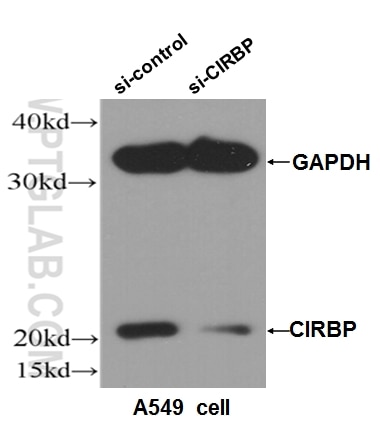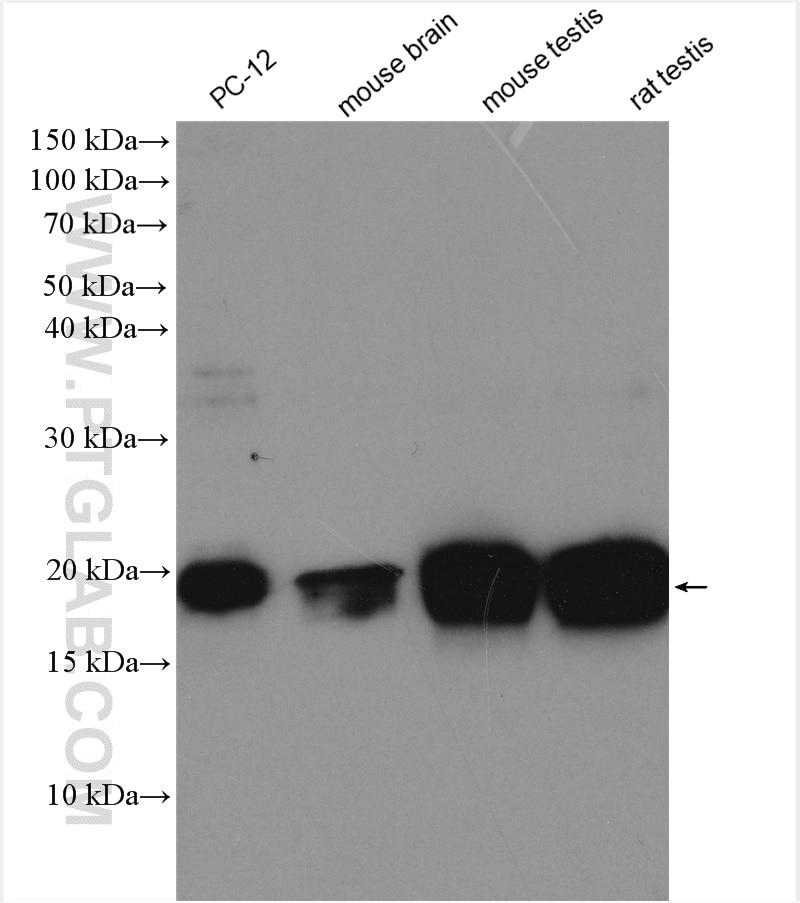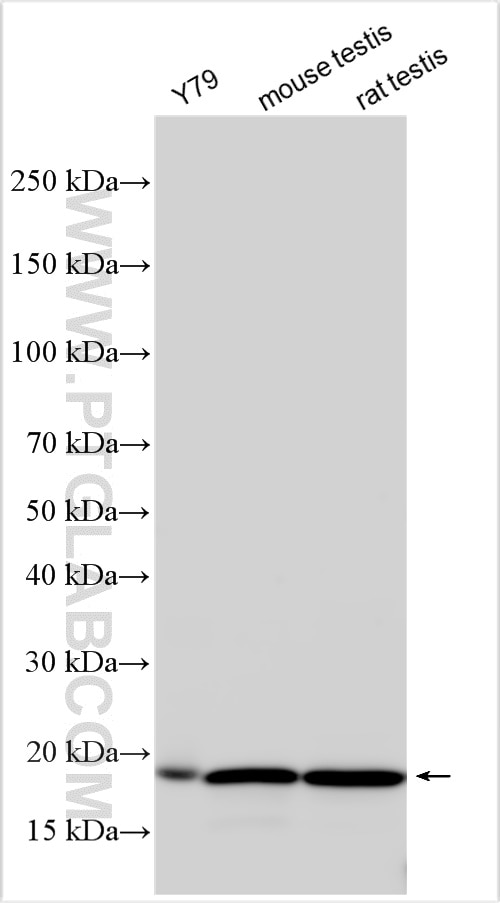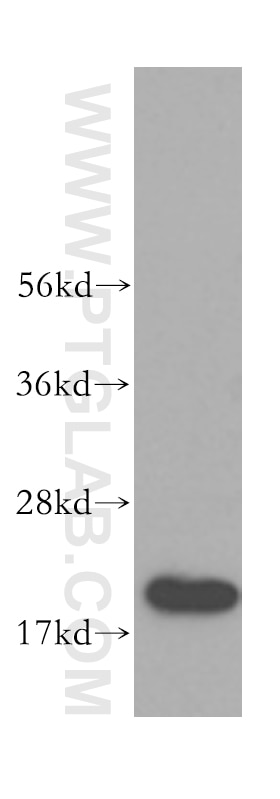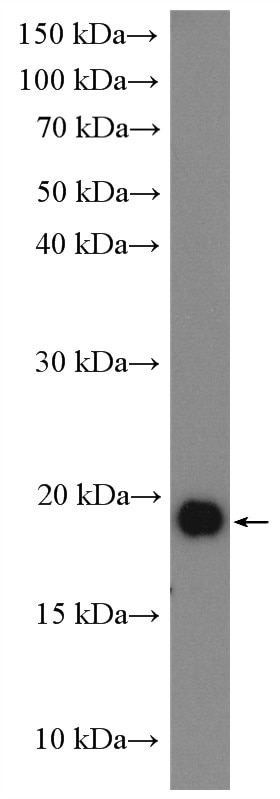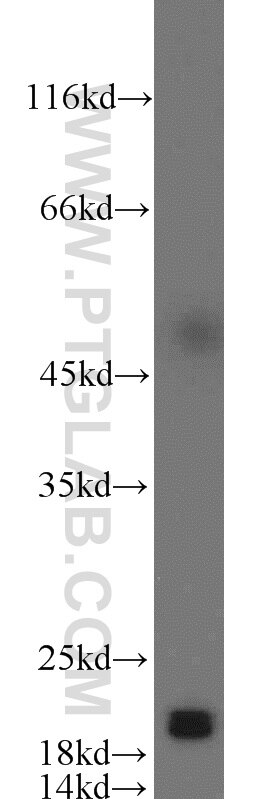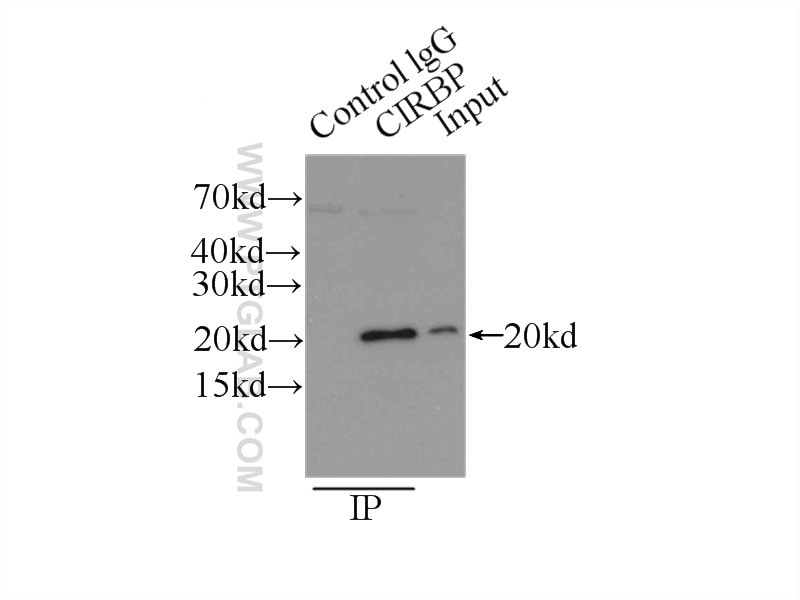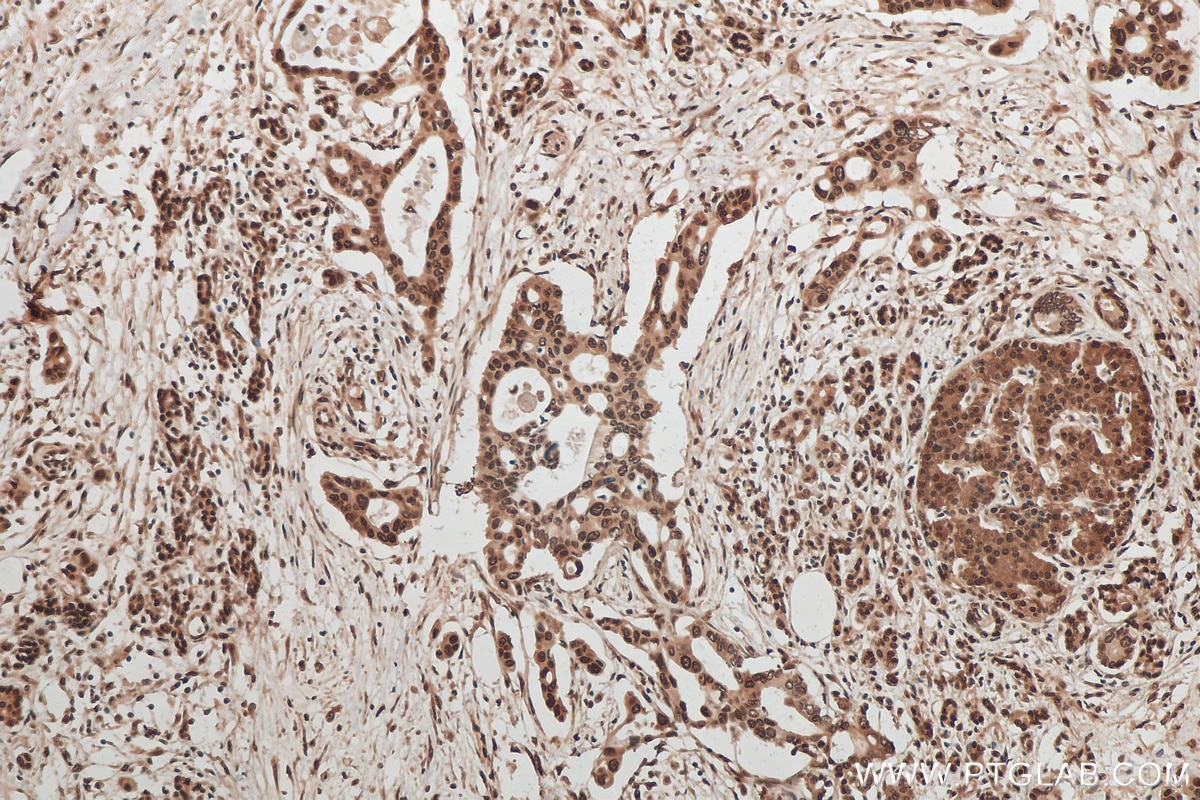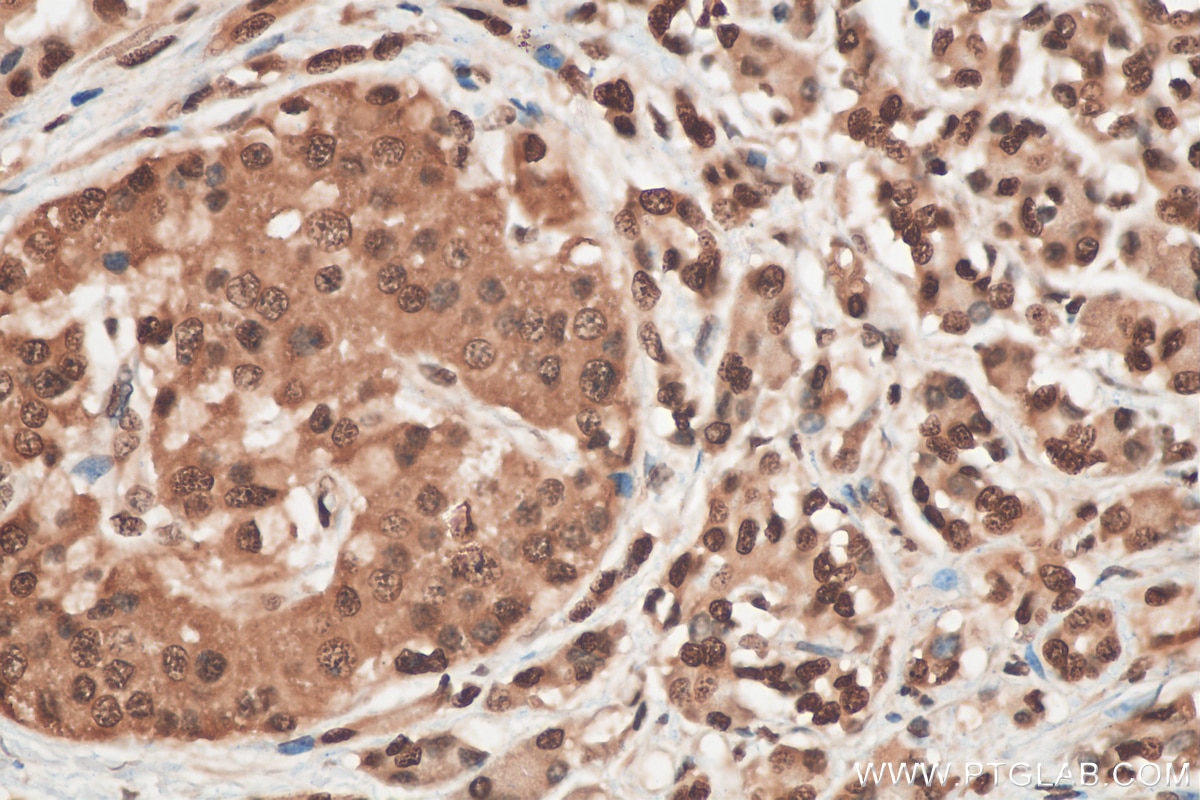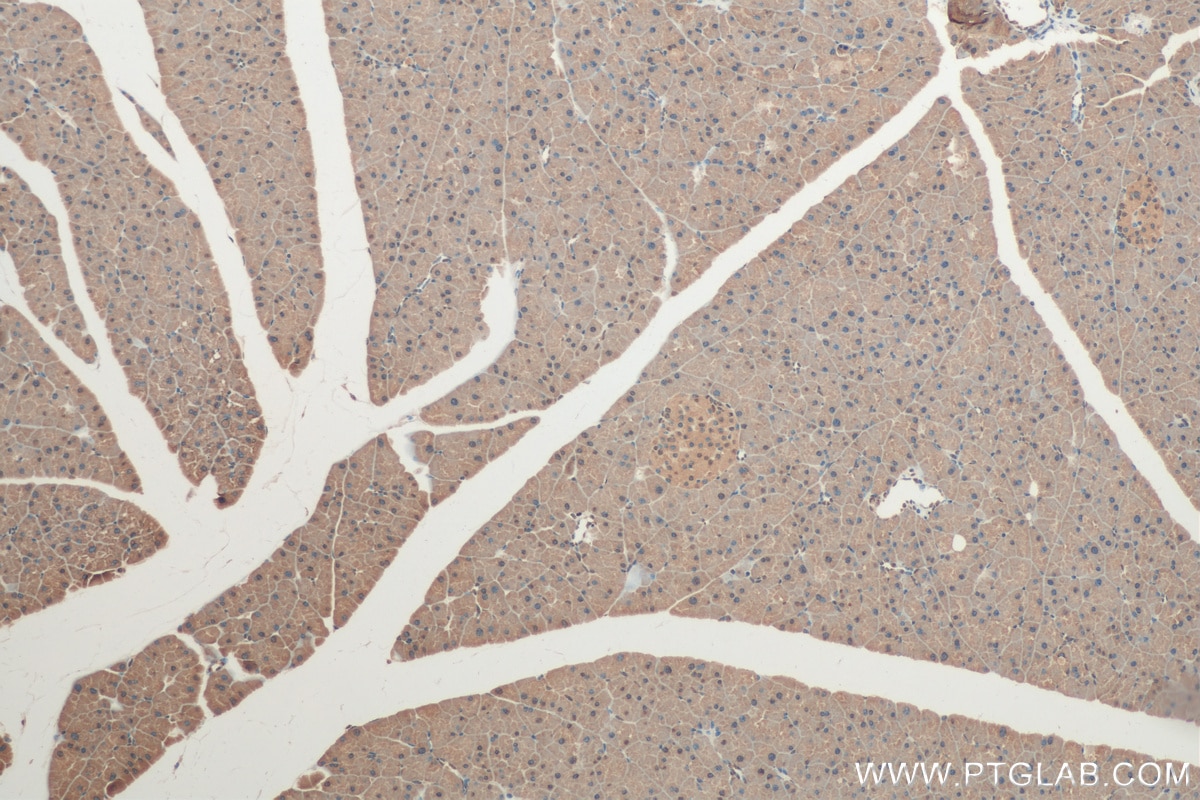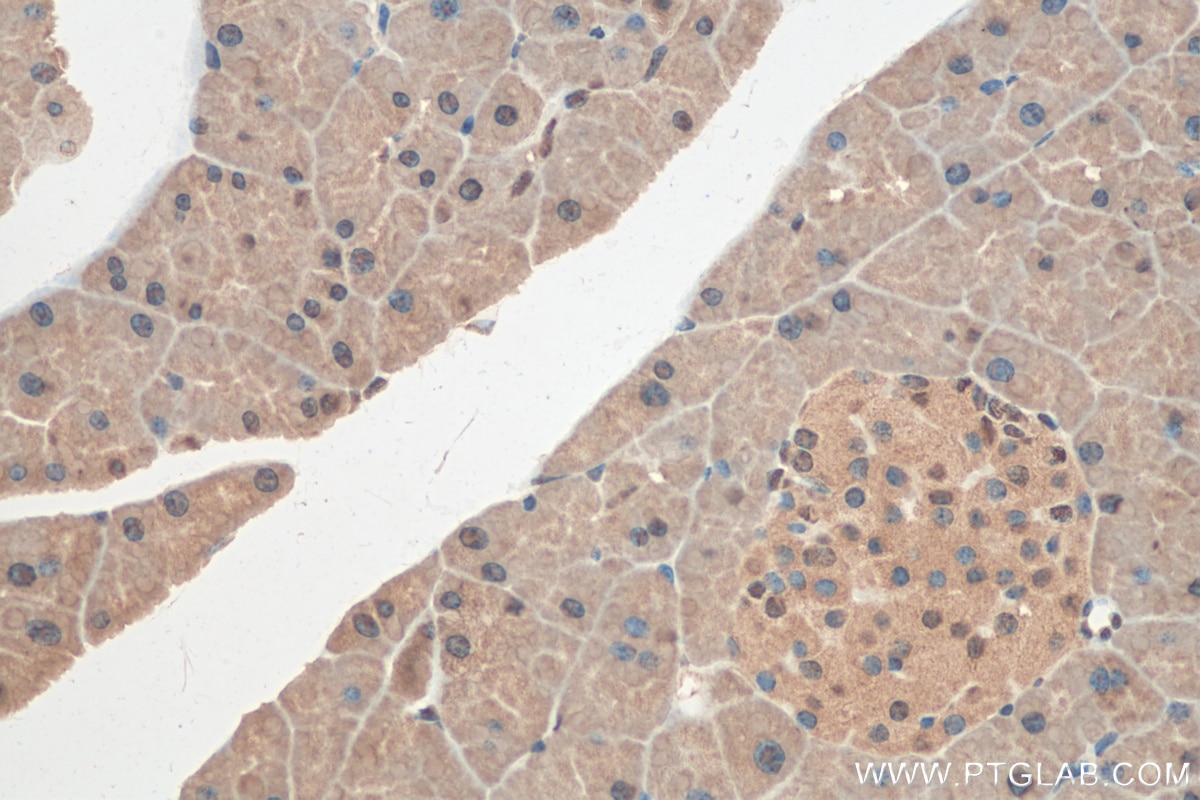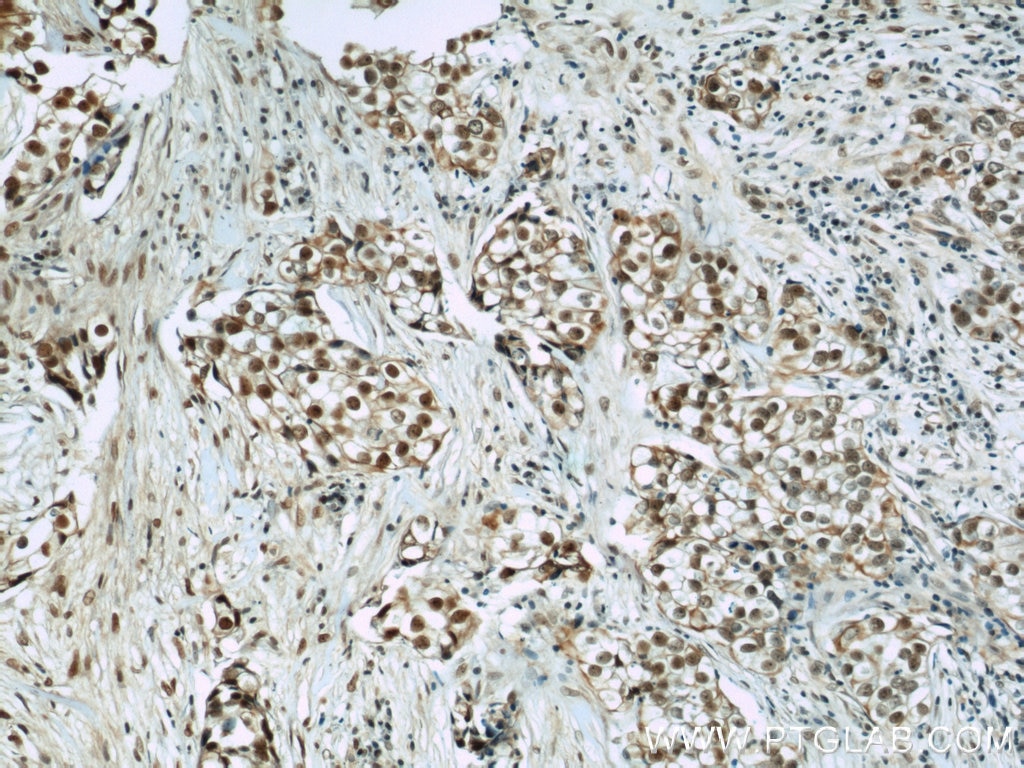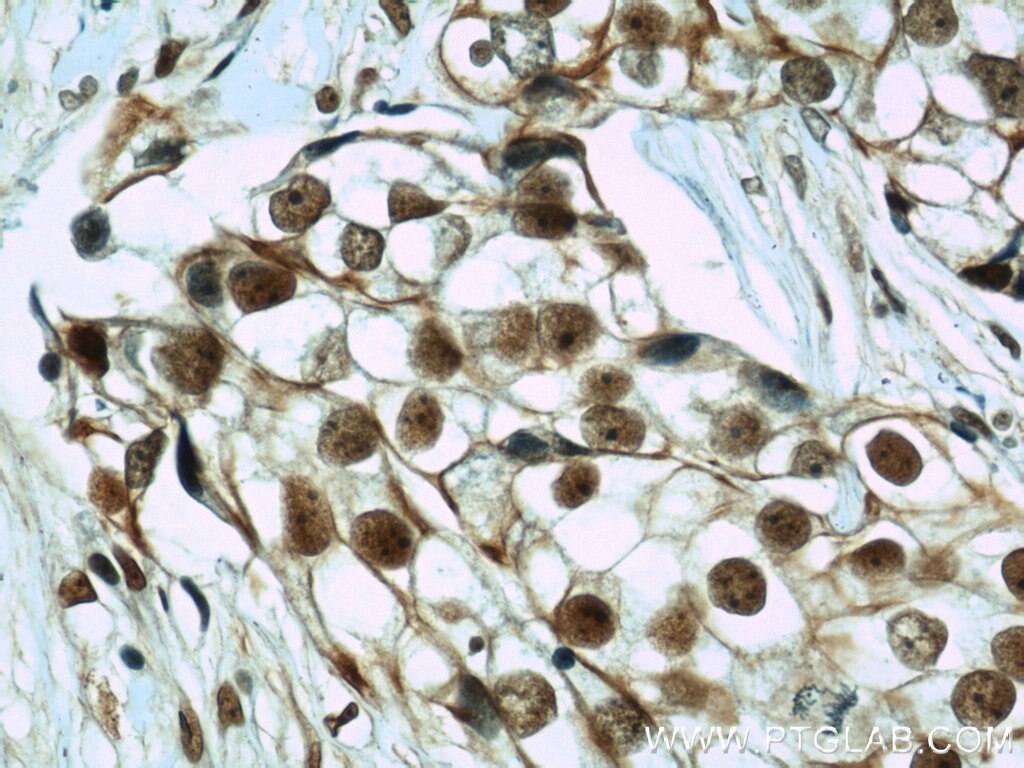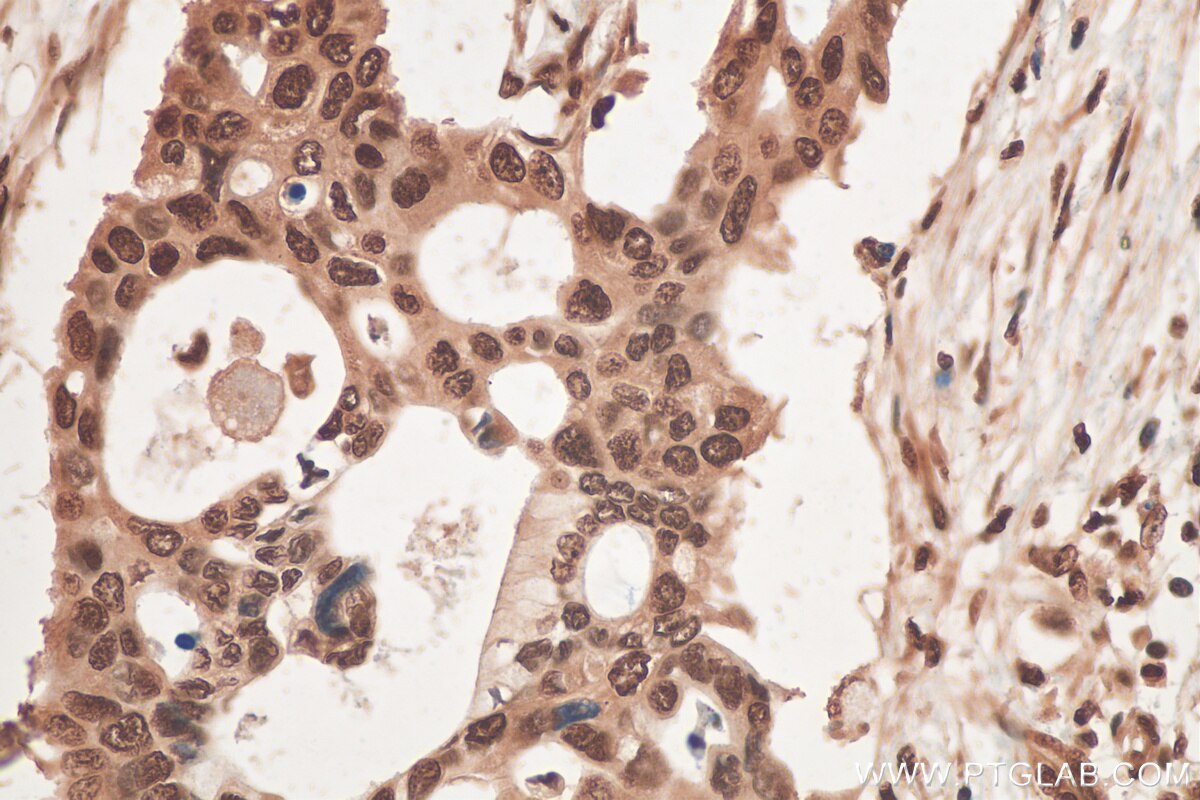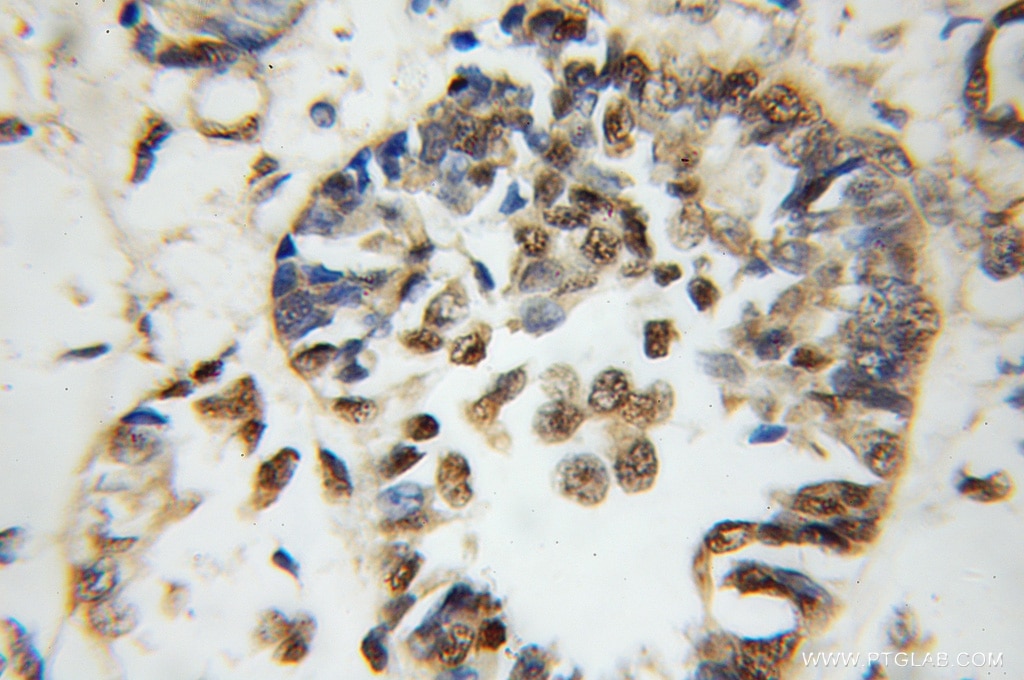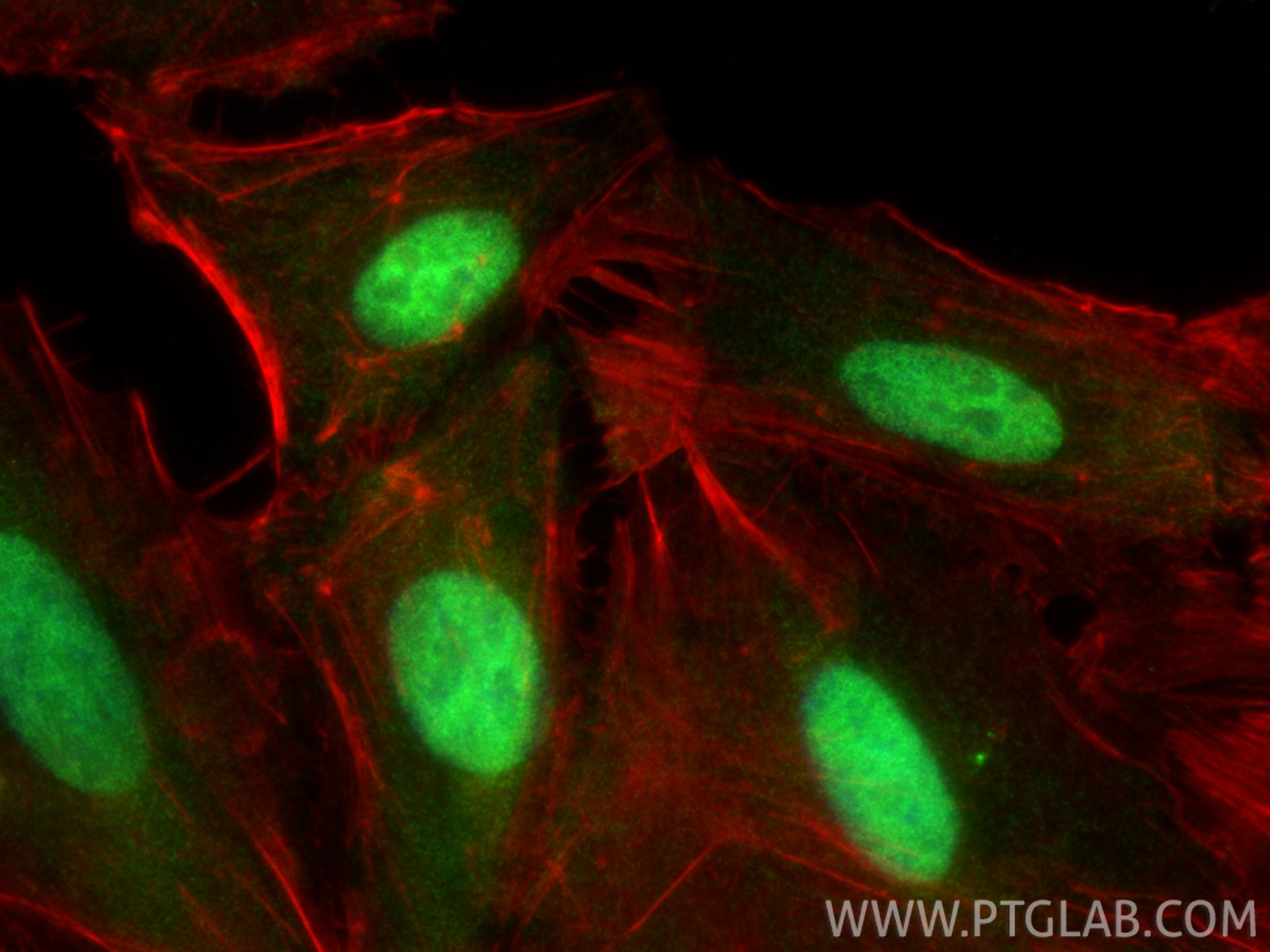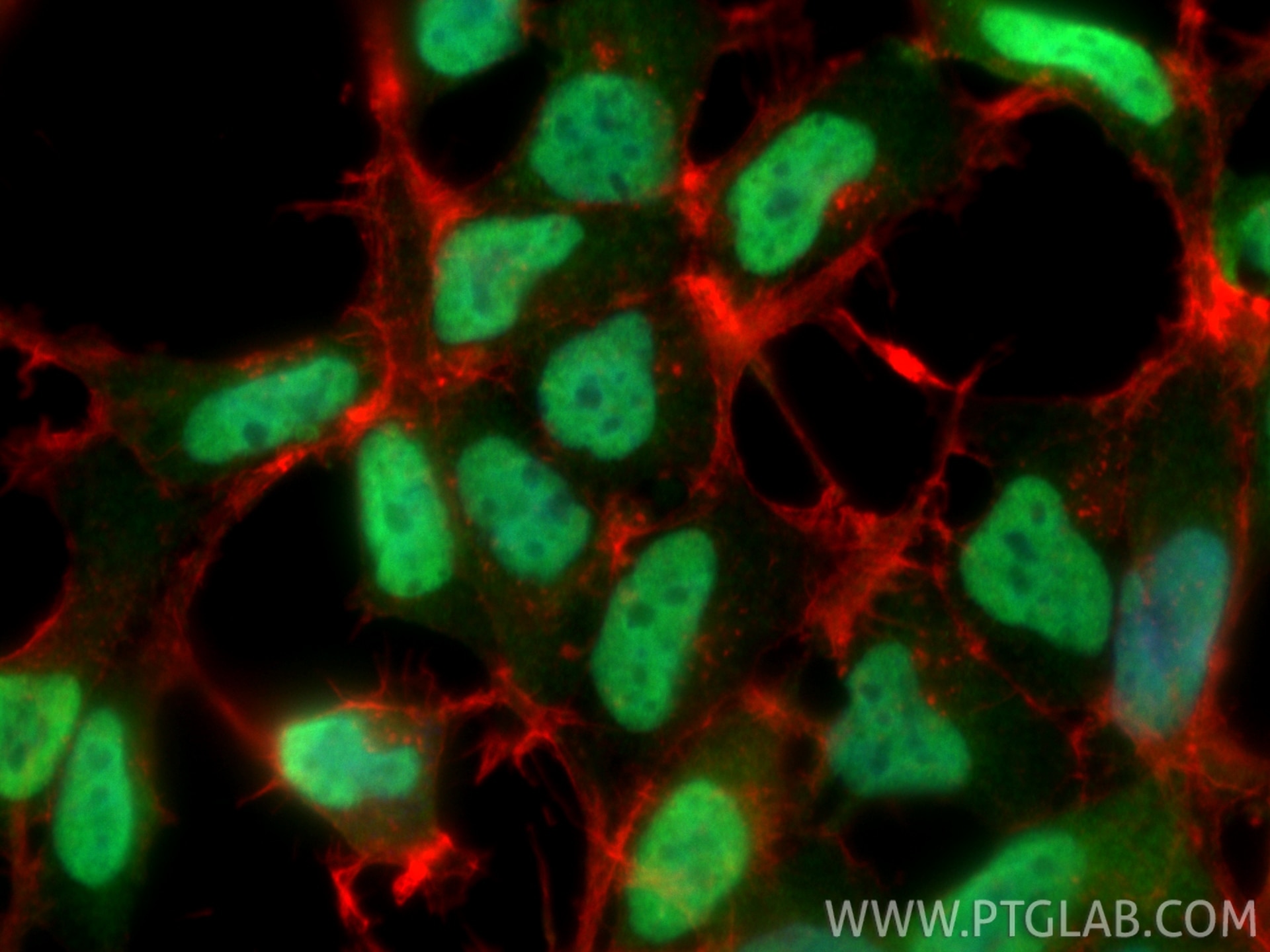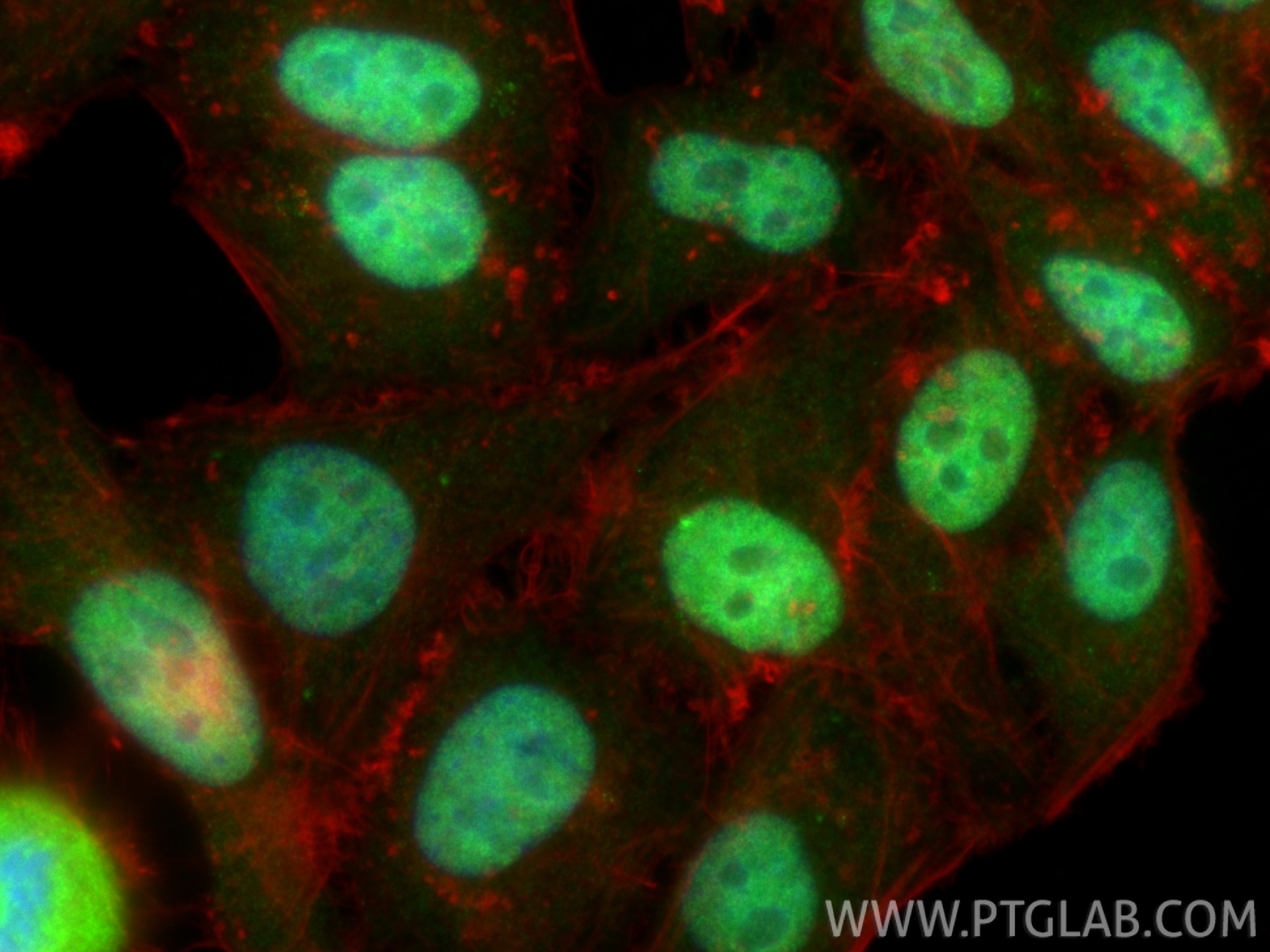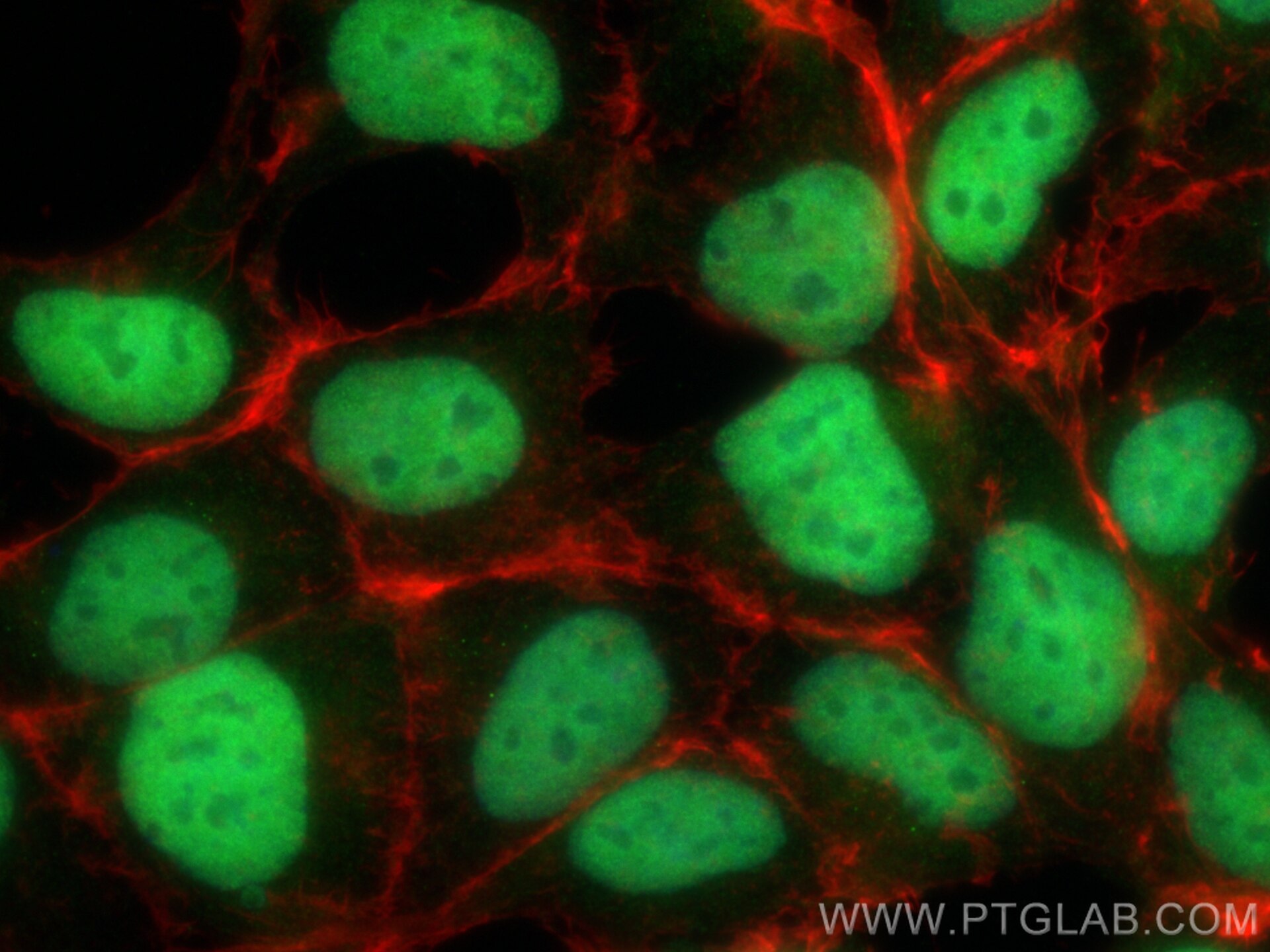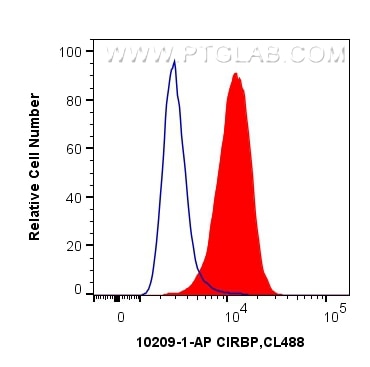Tested Applications
| Positive WB detected in | Y79 cells, A549 cells, HEK-293 cells, HepG2 cells, PC-12 cells, PC-13 cells, mouse testis tissue, rat testis tissue |
| Positive IP detected in | HepG2 cells |
| Positive IHC detected in | human pancreas cancer tissue, human breast cancer tissue, mouse pancreas tissue Note: suggested antigen retrieval with TE buffer pH 9.0; (*) Alternatively, antigen retrieval may be performed with citrate buffer pH 6.0 |
| Positive IF/ICC detected in | A549 cells, HEK-293 cells, HepG2 cells |
| Positive FC (Intra) detected in | A549 cells |
Recommended dilution
| Application | Dilution |
|---|---|
| Western Blot (WB) | WB : 1:2000-1:12000 |
| Immunoprecipitation (IP) | IP : 0.5-4.0 ug for 1.0-3.0 mg of total protein lysate |
| Immunohistochemistry (IHC) | IHC : 1:50-1:500 |
| Immunofluorescence (IF)/ICC | IF/ICC : 1:50-1:500 |
| Flow Cytometry (FC) (INTRA) | FC (INTRA) : 0.40 ug per 10^6 cells in a 100 µl suspension |
| It is recommended that this reagent should be titrated in each testing system to obtain optimal results. | |
| Sample-dependent, Check data in validation data gallery. | |
Published Applications
| KD/KO | See 20 publications below |
| WB | See 72 publications below |
| IHC | See 14 publications below |
| IF | See 15 publications below |
| IP | See 2 publications below |
| CoIP | See 1 publications below |
| RIP | See 2 publications below |
Product Information
10209-2-AP targets CIRBP in WB, IHC, IF/ICC, FC (Intra), IP, CoIP, RIP, ELISA applications and shows reactivity with human, mouse, rat samples.
| Tested Reactivity | human, mouse, rat |
| Cited Reactivity | human, mouse, rat, squirrel |
| Host / Isotype | Rabbit / IgG |
| Class | Polyclonal |
| Type | Antibody |
| Immunogen |
CatNo: Ag0280 Product name: Recombinant human CIRBP protein Source: e coli.-derived, PGEX-4T Tag: GST Domain: 1-172 aa of BC000403 Sequence: MASDEGKLFVGGLSFDTNEQSLEQVFSKYGQISEVVVVKDRETQRSRGFGFVTFENIDDAKDAMMAMNGKSVDGRQIRVDQAGKSSDNRSRGYRGGSAGGRGFFRGGRGRGRGFSRGGGDRGYGGNRFESRSGGYGGSRDYYSSRSQSGGYSDRSSGGSYRDSYDSYATHNE Predict reactive species |
| Full Name | cold inducible RNA binding protein |
| Calculated Molecular Weight | 172 aa, 19 kDa |
| Observed Molecular Weight | 19 kDa |
| GenBank Accession Number | BC000403 |
| Gene Symbol | CIRBP |
| Gene ID (NCBI) | 1153 |
| RRID | AB_2080263 |
| Conjugate | Unconjugated |
| Form | Liquid |
| Purification Method | Antigen affinity purification |
| UNIPROT ID | Q14011 |
| Storage Buffer | PBS with 0.02% sodium azide and 50% glycerol, pH 7.3. |
| Storage Conditions | Store at -20°C. Stable for one year after shipment. Aliquoting is unnecessary for -20oC storage. 20ul sizes contain 0.1% BSA. |
Background Information
CIRBP, also named as A18HNRNP and CIRP, is a cold-inducible mRNA binding protein that plays a protective role in the genotoxic stress response by stabilizing transcripts of genes involved in cell survival[PMID: 19158277]. CIRBP is also involved in cap-independent translation upon moderate cold-shock. It acts as a translational activator. CIRBP is a suppressive rather stimulatory effect on proliferation[PMID: 19777567]. CIRBP can translocate from nucleus to cytoplasm under stresses such as UV irradation or heat shock. Suppression of CIRBP increased the apoptotic cell population of neural stem cells at moderate low temperature[PMID: 20735994]. This antibody (Catalog# 10209-2-AP) is a rabbit polyclonal antibody raised against the full-length CIRBP of human origin.
Protocols
| Product Specific Protocols | |
|---|---|
| FC protocol for CIRBP antibody 10209-2-AP | Download protocol |
| IF protocol for CIRBP antibody 10209-2-AP | Download protocol |
| IHC protocol for CIRBP antibody 10209-2-AP | Download protocol |
| IP protocol for CIRBP antibody 10209-2-AP | Download protocol |
| WB protocol for CIRBP antibody 10209-2-AP | Download protocol |
| Standard Protocols | |
|---|---|
| Click here to view our Standard Protocols |
Publications
| Species | Application | Title |
|---|---|---|
Nature RBM3 mediates structural plasticity and protective effects of cooling in neurodegeneration. | ||
Cell iPSCs from a Hibernator Provide a Platform for Studying Cold Adaptation and Its Potential Medical Applications. | ||
Nat Med Cold-inducible RNA-binding protein (CIRP) triggers inflammatory responses in hemorrhagic shock and sepsis. | ||
Mol Cell Altered m6A Modification of Specific Cellular Transcripts Affects Flaviviridae Infection. | ||
Adv Sci (Weinh) Primate-Specific DAZ Regulates Translation of Cell Proliferation-Related mRNAs and is Essential for Maintenance of Spermatogonia | ||
Nucleic Acids Res Alternative splicing induced by bacterial pore-forming toxins sharpens CIRBP-mediated cell response to Listeria infection |

